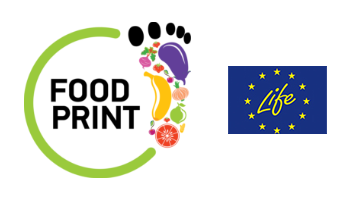Presentation of the results of the first nationwide FOODPrint survey

January 2021
Changing the habits and mindset of Cypriots in order to significantly reduce food waste in households and catering and hospitality businesses is the main objective of the Foodprint campaign.
This campaign is co-funded by the EU’s LIFE programme and coincides with Cyprus’ strategy to meet the broader environmental goals set before the EU for sustainable management and drastic reduction of municipal waste by 2030.
At a press conference in January 2021, the Minister of Agriculture, Rural Development and Environment, Costas Kadis, welcomed the implementation of the campaign because it supports the State’s concerted effort to implement a series of innovative source separation measures such as the pay-as-you-throw system and composting.
The partnership of the “FoodPrint” campaign with the slogan “no more food waste”, consists of the “Zeus” Group, the OEB, the Department of Environment, Friends of the Earth and the environmental consultants “Parponas – Sustainability” and communication consultants “Opinion and Action”. The project coordinator Antonis Karatzias – Director of the Development and Innovation Department of the Dias Complex presented the actions and objectives of FoodPrint, which include, among others, surveys, seminars for pupils and students, consultations with businesses, professionals and organized groups, publication of guides, creation of a cooperation network for food supply and a series of environmental actions.
- Councillor Kyriakos Parponas presented the findings of the first pan-Cypriot survey on food waste, of which the following stand out:
Households waste more food than they estimate. More than 73% buy more food than necessary. 85% of households say that when preparing or ordering food there are leftovers. The average household throws away 23% of their weekly food, vegetable and fruit purchases.
When Cypriots throw food and groceries in the garbage they mainly feel(a) guilty (56%) and (b) that they wasted their money unnecessarily (46%). The feeling that this act is damaging the environment is less pervasive (30%). - Seven out of ten consumers tend to buy more food than necessary; in most households, there is surplus food that is not consumed. In two out of ten households this happens most of the time, and in almost seven out of ten, sometimes. Only 14% of households almost never have food left over.
- Two thirds consume the leftover food on the following days, while a third tend to give the leftover food to pets. More rarely is leftover food used for composting (9%). One in six, quite often or always, throws away leftover food.

